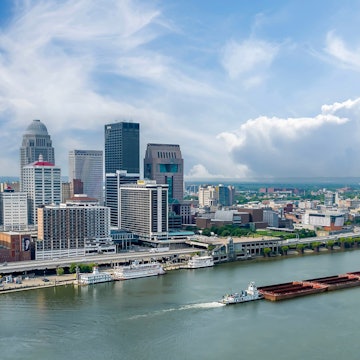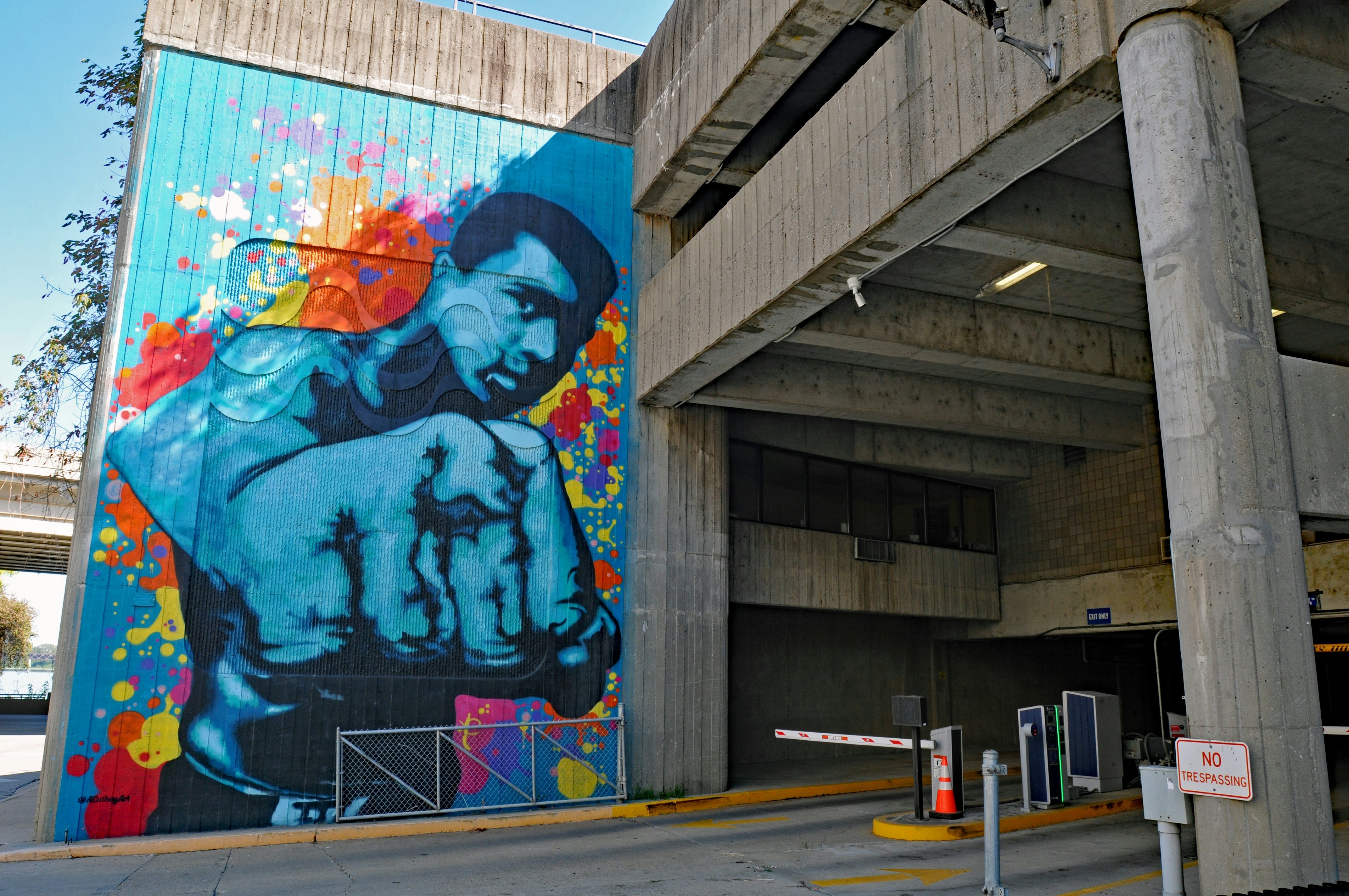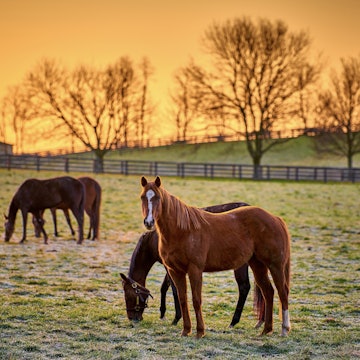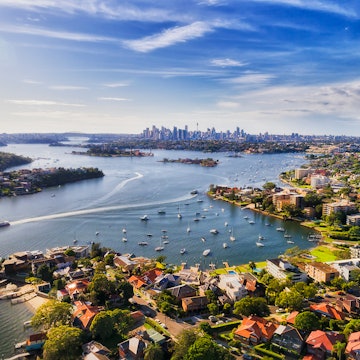

Historic Old Louisville. EQRoy/Shutterstock
Many visitors to Louisville never travel beyond Downtown, which makes sense: this compact and walkable district is packed with some of the best museums in the South, as well as top-notch bars, restaurants and distilleries. What's not to like?
But Louisville's charm extends to its historic neighborhoods, too. Celebrated architectural treasures like Victorian mansions, German-built shotgun and camelback homes and renovated meatpacking warehouses help shape a patchwork of unique personalities colored with travel-worthy breweries and distilleries, quirky shops and some of the South's best restaurants.
It's easy to get around Louisville and explore on a budget. Here are the best neighborhoods to check out while you're here.

1. Downtown Louisville
Best for museums and distilleries
It's easy to get sucked into Downtown's charms and leave Louisville without ever escaping its grasp – it's easily one of the most compact and navigable cultural corridors in the entire American South. Victorian-era buildings and their extraordinary cast-iron facades share real estate with striking contemporary architecture, creating a neighborhood that is as visually compelling as its iconic Americana allure.
The city is anchored by a head-spinning arsenal of arts and culture attractions on and around West Main Street, known as Museum Row, including the Muhammad Ali Center and Louisville Slugger Museum & Factory – two of the most emblematic icons in American sports history. Nearly all of most celebrated attractions except Churchill Downs and the Kentucky Derby Museum sit here within 0.4 miles of each other – the Kentucky Center for the Performing Arts, the Evan Williams Bourbon Experience, Kentucky Science Center, KMAC Museum, 21c Museum Hotel and the Frazier History Museum among them.
Surrounding these attractions are some of the South's most interesting and dynamic food (Proof on Main) and drink (Meta, Ei8htUp, Hell or High Water) establishments, several worthwhile distilleries (Old Forester Distilling Co, Michter's Fort Nelson Distillery) and an arts-driven focus that gives the entire quarter a sense of creative fervor. Home to one of the largest collections of cast-iron facades outside of New York City’s SoHo neighborhood, Downtown is easy on the eyes as well.
2. Germantown
Best for atmospheric bars
Germantown and its sister neighborhood, Schnitzelberg, are located about three miles southeast of Downtown on either side of Goss Ave. Once a marshy swampland, the area was settled by German immigrants throughout the second half of the 19th century and today is famed for being home to one of the largest collections of surviving shotgun and camelback homes in the US.
Traditionally a working-class neighborhood, Germantown has been a hotbed of divey neighborhood bars dating to the arrival of the beer-loving Germans; today, the district skews younger and somewhat alternative, but its reputation as a watering hole for a stiff drink or a cold brew remain. It's the kind of place that's perfect for transforming a former auto garage into a quirky bar/consignment shop (ShopBar) or where dive bars like The Pearl of Germantown and The Nachbar serve beers with a shot to both bearded hipsters and construction workers without irony.
Monnik Brewing Co. in Schnitzelberg is one of Louisville's best craft breweries both in beer quality and atmosphere, and their beer cheese with spent grain bread is one of the best versions of this unique Kentucky dish you'll find anywhere in the state.

3. Butchertown
Best for epicurean delights
The area just east of Downtown was dominated by butcher shops and stockyards throughout the 1800s. Today JBS Foods is the lone survivor and protein anchor for Butchertown, a neighborhood now listed on the US Register of Historic Places due to Washington Street's Greek Revival architecture, shotgun homes and St. Joseph Catholic Church dating back to 1886.
Butchertown's revival owes a deep debt to dining and shopping, which coincide with Louisville's city-wide post-Great Recession hipsterfication. When Bourbon Stockyards – the longest continuously operating stockyard in the US – shuttered in 1995, the neighborhood collapsed. But cheap rents and alternative spaces soon lured innovative chefs and retail visionaries, who kicked off one of the city's coolest reincarnations. Butchertown Market was one of the city's first establishments to convert a slaughterhouse into a cutting-edge retail space.
Butchertown's food and beverage scene now dominates the district. Feeling peckish? Naive, Pho Ba Luu and Cultured Cheese & Charcuterie are sustenance staples. The new Copper & Kings Rooftop Bar and Restaurant has opened above the already-established Copper & Kings, Bourbon County's only brandy distillery. TEN20 Craft Brewery also keeps neighborhood thirst at bay.
4. NuLu
Best for shopping
Downtown's East Market Street just south of Butchertown was originally known as the East Market District, but hip re-branding has christened the neighborhood NuLu (New Louisville) – home to thriving art galleries, antique shops and local-centric creative specialty retail stores. The district's history as a hubbub of commerce dates to the early 1800s; throughout the 19th century, the street was dominated by markets, stockyards and retailers.
Local shops dominate the landscape here. Unique home goods and Kentucky-themed gifts (Revelry), locally driven bath products (Peace of the Earth), coveted caramel-covered marshmallow confections called Modjeskas (Muth’s Candies) and hand-crafted leather (Clayton & Crume) are just a sample of the imaginative retail fare in NuLu.
Like most Louisville neighborhoods worth their name in grain, distilleries (Rabbit Hole, Angel's Envy), breweries (West Sixth, Akasha, Goodword) and great eateries (Mayan Cafe, Feast BBQ) also feature, so refueling after some retail therapy is not a problem.

5. The Highlands
Best for craft beer
Before every neighborhood in Louisville offered a head-spinning laundry list of outstanding food and drink, there was Bardstown Road, the city's original Restaurant Row. The fun begins three miles or so southeast of Downtown, where a three-mile stretch of Baxter Avenue and Bardstown Road – which leads out of Louisville into the heart of the Bourbon Trail – is known as the Highlands for its location atop a ridge between Beargrass Creek's middle and south forks.
Bustling with nocturnal diversion, the Highlands is the perfect neighborhood to position yourself for a deep weekend run on the bars. For connoisseurs of craft, that might mean worshipping at the altar of rare Old World brews inside a converted church at Holy Grale or IPAs, German-style pilsners and barrel-aged sours at Gravely Brewing Co. Highlands Taproom offers another 25 choice brews on draft.
But the Highlands can't be solely characterized as a craft haven – this is a come one, come all stretch of watering holes. Both Hunter S. Thompson and Jack Harlow grew up here, which personifies Highland's eclectic personalities. Classic dives like Bambi Bar share real estate with traditional Irish pubs like Molly Malone's, Flanagan's Ale House and O’Shea’s and welcoming LGBTQI+ hangouts like Big Bar and Chill Bar. With the addition of two new hip accommodations, Bungalou and The Bellwether, the stumble back home is even shorter!

6. Old Louisville
Best for a taste of the Victorian era
The neighborhood of Old Louisville boasts the largest collection of restored Victorian homes in the country and is the third-largest Historical Preservation District in the US. Across about 40 blocks sandwiched between W Broadway, one mile south of Downtown's Louisville Slugger Museum & Factory, and the University of Louisville's main campus south of W Hill St, Victorian mansions were constructed in a wide range of styles at the tail end of the 1883–1887 Southern Exposition (a five-year series of World's Fairs held in Louisville).
In addition to the architectural eye candy on display throughout the district, Old Louisville hosts numerous B&Bs, which makes it a very charming neighborhood to come home to after a day of sightseeing and bourbon-swilling. Sleeping here leaves you perfectly positioned to visit attractions in Downtown, the Speed Art Museum at the southern end of Old Lousiville, and key South Louisville sights such as Churchill Downs and the Kentucky Derby Museum, Iroquis Park, Kentucky Kingdom and Jefferson Memorial Forest, one of the largest urban municipal forests in the country.















